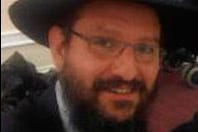
In Parshas Bechukosai, the final Parsha of Sefer Vayikra, and a Parsha the Chazal ensured we read before Shavous every year, we read of the Brachos given to the Jewish people when they fulfill Hashem’s commandment, as well the consequences for failing to observe the Mitzvos. We read this Parsha before Shavous, to inspire the minds and hearts of the Jewish people promptly before receiving the Torah anew, to refresh and rededicate ourselves to the ways of Torah and Mitzvos.
Rabbi Shneur Zalman of Liadi, the Baal HaTanya, when describing the 49 consequences, uses the above term; “In truth, there are nothing but blessings”. With this statement, he encapsulates an inner dimension to Torah, and a fundamental approach to every word and every happening in Torah. While on the surface, these Pesukim speak of the opposite of Bracha, the failure of observing the Mitzvos properly, beneath the surface, there exists a deeper dimension, a dimension and element of Torah where we read only blessings.
In the Gemoro, Moed Katan 9a-9b, there brings an episode where Rabbi Shimon Bar Yochai sent his son, Reb Elazar, to request a Bracho from two chachomim of that time – Reb Yonasan ben Asmai and Reb Yehuda ben Gairim. The chachomim proceeded to reap Reb Elazar with a series, of what appeared to be, quite the opposite of a Brocho; “May it be G-D’s will that you will not sow and reap. That what you bring in will not go out, and what you take out will not come in. That your house will be empty, and your temporary lodging inhabited. That your table will be disturbed, and that you will not see a new year”. Not quite the blessing he bargained for.
When Reb Elazar returned back to his father and reported the so called ‘beautiful terms’ that were bestowed upon him, Rabbi Shimon replied; “These are all blessings! “You will not sow and reap”, means you will have children and they will not die. “What you bring in will not go out”, this means that you will bring in wives for your sons, and they will never be parted from your sons. “What you take out will not come in”, you will marry off your daughters and their husbands will not die, so your daughters need not come back. “Your house will be empty, and your temporary lodging inhabited”, this world is referred to as a temporary lodging, with the next world being referred to as the “house”. “Your table will be disturbed”, by your children. “You will not see a new year”, this means that your wife will not die, and you will need not find a new wife.
We take lesson from Rabbi Shimon Bar Yochai, whose passing and teachings we recently celebrated, to see, that through studying and connecting to Hashem on a deeper, more sublime level, we can become in touch with the most inner dimensions of the Torah. We can connect to Hashem with such a unity, that our physical and intellectual eyes immediately see how everything is positive at the core, and everything in Torah is full of life and goodness. We can get past the disguise of what seems to be negative consequences, and realize the Brachos that are encapsulated, that lie beneath the surface of these words. Brachos so great, that they could not be expressed in a forward manner, rather they had to be hidden within a form that seems to connote the opposite.
May we merit the time, when all of these Brachos, will be revealed and expressed in a way that is apparent to every human being. “B’tov Hanirah V’Hanigla” – that the goodness and kindness of Hashem should be an open and revealed goodness to everyone, with the coming of Moshiach, now, Amen.
Rabbi Menachem M Junik







